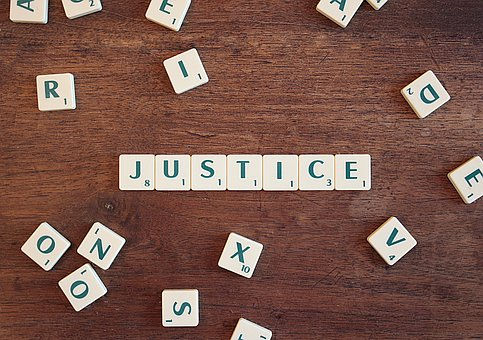The Civic and The Christian Imagination
- Marvin T. Brown

- May 8, 2023
- 3 min read
Updated: Jul 26, 2024

Some may imagine the civic as a space for doing good, which is fine if it doesn’t deny social estrangements. Once we include social estrangements, however, then we must imagine how we should deal with them.
Perhaps it would help to contrast the “civic imagination,” with a “Christian imagination.” Willie James Jennings gives us his perspective of such an imagination in his book, The Christian Imagination: Theology and The Origins of Race (2010). For him, the “Christian imagination” emerges from the early Christen church’s decision that the “church” replaced “Israel” as the holder of God’s covenant. This led the church (Christians) to see itself as superior to Israel (Jews), which resulted not only in a long history of antisemitism culminating in the Holocaust, but also the long history of white supremacy that led to crimes against humanity in the Americas and elsewhere.
Jennings is motivated to write this critique of the Christian imagination, I assume, because he believes there is another story of Jesus as a Jew who revealed God’s intimacy (Jennings term) for both Jews and Gentiles. He proposes that instead of separating Christianity from Judaism, that Christians recognize a basic interdependence. One might take this Christian imagination as a model for a civic imagination—the unity of differences—but I think that would be a mistake.
The Christian imagination was not limited to its relationship with Judaism, but also included its relationship with the State or Roman government. The early Jewish Christian church existed under Roman rule, and while Christians might be critical of it, and rebel against it, they did not see themselves participating in it. One does not see in the Biblical tradition, in other words, what I would call a “civic imagination.”
The civic imagination, in fact, does not have its origin in the Biblical tradition, but in classical Greek experiments in government. Aristotle thought that the civic life was the telos or purpose of human communities. First family, then clans, and then the civic. Although he did not support democracy, he did believe that since no one leader was perfect, it was better to have several with different views. By no means would we want to return to classical Greek and its exclusion of non-Greeks, slaves, and women from the civic sphere. Still, if you ask about the source of a civic imagination, it’s classical Greece. There we see participation in government rather than resistance to it.
The view of the civic imagination that I developed in the third part of A Climate of Justice, has its roots in both a citizen and a Christian imagination. I imagine the civic not only for “Greeks,” but for all, which means that our social disparities cannot be excluded from the civic, or erased from civic consciousness, but rather need to be recognized, repaired, and restored. This means that the civic incudes both the Resourceful and the Resourceless, or what I call Citizens and Civilians. In fact, it’s the civilians (the vulnerable who need protection) who have the capacity to invite citizens (those with resources) into a climate of justice.
It may be difficult to imagine such a space, especially in the United States where the “Christian imagination” continues as various forms of white supremacy, and sees government as something to resist, as though Christians still lived under Roman rule. Instead of creating civic organizations that are subject to government (democratic) oversight and rely on government funding, “Good” Christians create non-governmental organizations that rely on private donations.
Since donations are tax-deductible, which means that such giving decreases the government’s revenue. In 2021, Americans donated $484.85 billion to non-governmental organizations. Imagine what the government could have done if that money had been taxed to improve such public entities as our public schools, public housing, and public health.
It's makes sense to see us as a “Christian nation” in the sense that we live in a legacy of the Christian imagination. This not only makes it difficult to deal with white supremacy but also with resistance to government involvement, or in other words, to the development of a civic imagination.
If we cannot imagine a civic realm where social injustices are corrected, I doubt if it will happen.

Comments